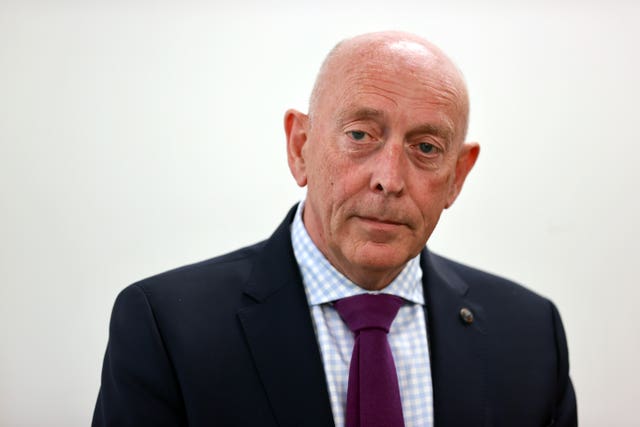ICRIR given advice over enabling potential meetings for victims and perpetrators
Sir Declan Morgan said it is something that would be victim-led and done ‘astonishingly carefully’.

Northern Ireland’s legacy body received advice around a potential move to enable victims and perpetrators to meet where there is a desire to, a Westminster committee has heard.
Sir Declan Morgan, chief commissioner at the Independent Commission for Reconciliation and Information Recovery (ICRIR) said “extreme caution would be needed”.
Addressing the Northern Ireland Affairs Committee on Wednesday, Sir Declan said they have considered actions beyond compiling a report on murders and atrocities from the region’s troubled past.
“We’ve looked at whether if victims want to meet perpetrators, or representatives of perpetrators, whether there should be a mechanism for them to do so,” he told MPs.
“The first thing about anything that goes beyond the report that we produce is that it must be victim led.
“It’s not for the perpetrator to make any decision about this, it must be victim led.
“We had our external assurance group reflect on how this might be done, and what the mechanisms might be, and the advice back to us is that it is certainly worth thinking about something after the report has been prepared where there might be a way of enabling some kind of meeting between the victim and the perpetrator, but the advice is that you need to be astonishingly careful about this because the danger is that you will actually retraumatise the victim.
“I think if it is going to be contemplated, I would have thought the most sensible thing to do is to think carefully about it and then to run something as a pilot rather than just to put it into the legislation wholesale.
“But I can’t overemphasise the advice to us from the external assurance group, which included some experienced people in this territory that you need to be very careful.”

ICRIR commissioner for investigations Peter Sheridan, who in a former role brought together an IRA man and the widow of the police officer he murdered, also appeared at the committee.
He said, when he was chief executive of peacebuilding charity Co-operation Ireland, he was approached by the widow over meeting the perpetrator.
“I didn’t know her, she wanted to meet the perpetrator of her husband’s murder, I didn’t know him either but through a process I got the two of them together,” he told MPs.
“I went into the room with them, I said to them, ‘look, I feel like this is a private conversation’, and the widow said to me, ‘no, I want you to stay’.
“I have never broken the confidence of what was said in that room between them.
“Except two things struck me about it, one was how respectful the conversation was, even though this person had been involved in the murder of her husband, but secondly the questions this lady was asking.
“She wasn’t asking what I would have thought as an investigator, she was asking simple things, ‘were you following our kids to school at the weekend, did you follow them to the swimming pool, were you looking through our windows at night time’.
“These were things that were with her for over 40 years, and she rhymed them off, it wasn’t just that this was somehow today she thought about them, this had been in her mind.
“And he answered them, and answered them honestly, and then told his own story, and I left with the two of them embracing.
“That was one sense of reconciliation for those two people, not every victim wants to meet the perpetrator but I do see that there are other opportunities, and it is one of the reasons why I put my hand up to apply for the commission because I could see that there were other possibilities in it.”





